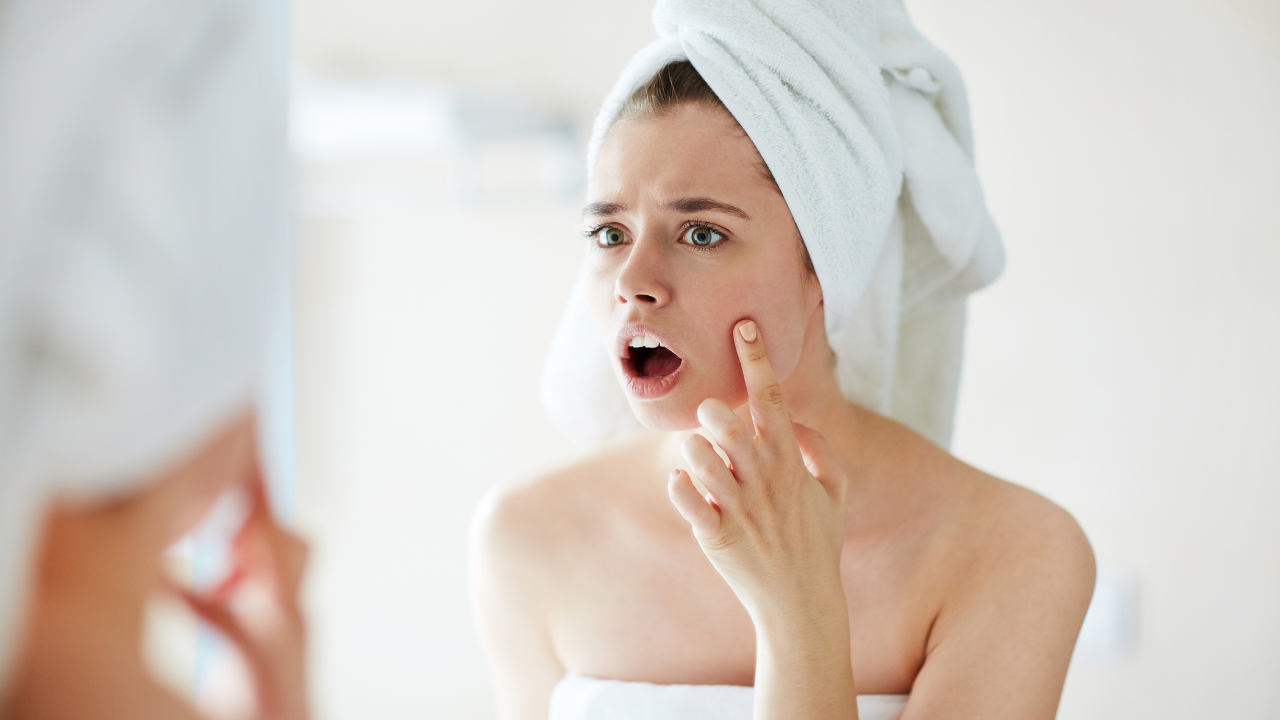Acne: what your doctor didn't tell you

Acne is really unfair. I know, because I had cystic acne for years and tried every standard therapy under the sun, with no lasting results.
You see, our skin is a reflection of what is going on inside our body. So acne is not just a skin disease. It is a symptom, a sign that our body is giving us that things are not right on the inside. Most standard treatments focus on the skin ONLY, and miss important underlying root causes, which is what I'm going to share with you here.
So many people focus ONLY on the skin when they treat acne, using creams, potions, and doctors prescribe antibiotics or even isotretinoin (Accutane) but while these may bring short-term benefits, none of these address the underlying root causes. When the bandaid comes off, the acne returns.
Obviously, in teenagers, hormonal imbalance is the commonest cause and fortunately for most, acne settles down after puberty. However, there is a growing epidemic of adults with acne. Some of it is genetic, some skin types are acnegenic, but as usual, genetics load the gun but our environment/lifestyle pulls the triggers.
What factors lead to acne?
- FOOD – Consuming inflammatory foods like refined sugar, dairy, or foods you are allergic to leads to inflammation. Is it a myth that sugary foods lead to acne? NO! A large study published in JAMA found that a western diet rich in animal products, sugar and dairy was associated with acne in adults. Refined sugar spikes your insulin, which then stimulates our ovaries to produce more testosterone. Testosterone increases sebum production which can contribute to acne.
- BY FAR the biggest culprit for acne that most dermatologists are not talking about is dairy (several studies have shown a clear relationship between dairy and acne).
- Stress – this affects your hormones and also causes inflammation, gut issues (leaky gut) and dysbiosis
- Hormonal imbalance – which stems from the above two factors, but can also be other things like environmental toxins, the thousands of endocrine disruptors in our everyday products which can get into our bodies and start interfering with our own hormone balance.
- Toxins/heavy metals – see above
- Gut issues – dysbiosis, leaky gut (and guess what, those antibiotics doctors frequently prescribe to treat acne will worsen this)
- Genetic predisposition – some people are more prone to acne – sadly we cannot change our genes but luckily we can address the rest of the above factors.
How does dairy cause acne?
✔ It contains 5-a-pregnanedione which is a precursor to dihydrotestosterone (an androgen that stimulates sebaceous glands and is implicated in balding and prostate cancer)
✔ Dairy also kicks up the mTOR pathways which then leads to insulin resistance. Insulin resistance is what underlies PCOS (polycystic ovary syndrome) and we know a high circulating insulin level is associated with acne… (and by the way, the ‘mTOR march’ = early onset puberty, obesity, type 2 diabetes, cancer, neurodegeneration means that if we heed the warning our body is giving us (acne), and we down-regulate mTOR pathways with lifestyle changes and diet, we may then stop the development of diabetes, cancer, and Alzheimer’s later.
So what can you do?
- Eliminate dairy – discuss this with your doctor and if you are eliminating dairy, please make sure you are getting enough calcium from other sources. Adequate calcium IS important, but we don't need to get it from milk.
- Eliminate sugar – this will drive insulin and along with other dietary factors like saturated fat, lead to insulin resistance and a high insulin level in the blood will cause acne.
- Heal your gut (I have blog posts about this so check them out. Many acne sufferers have gut dysbiosis and leaky gut)
- Support your liver - our liver is responsible for blood sugar regulation, breaking down our hormones, and eliminating environmental toxins - all of these, when not optimized, can show up on your skin as acne. Liver supporting foods include cruciferous vegetables, green tea, turmeric, and you can get my blueprint on how to support your detox organs in my signature course Detox Right.
- If that doesn’t work – then look at your diet: what else are you eating that could be contributing to inflammation – try to eat a whole food plant-based diet which is nutrient-dense, so that your body is nourished. Add anti-inflammatory foods into your diet like green tea, herbs, and spices.
Also consider: could you have food sensitivities? Do you have digestive issues? Do you have gut dysbiosis or leaky gut? Look at your lifestyle: is stress a prominent feature? Do you often feel overwhelmed? do you sleep enough? if your cortisol is high that also leads to insulin resistance
Do you have dental amalgams or exposure to heavy metals (e.g. too much high mercury fish) that could be playing havoc with your gut/liver health and therefore hormones? Do your personal care products have endocrine disruptors? Do your foods contain hormones and toxins? (animal products contain lots of sex steroids, PCB/dioxins which are all endocrine disruptors)
If you want to take the next step in reducing your toxic load, sign up for my FREE 5 day email masterclass here.

